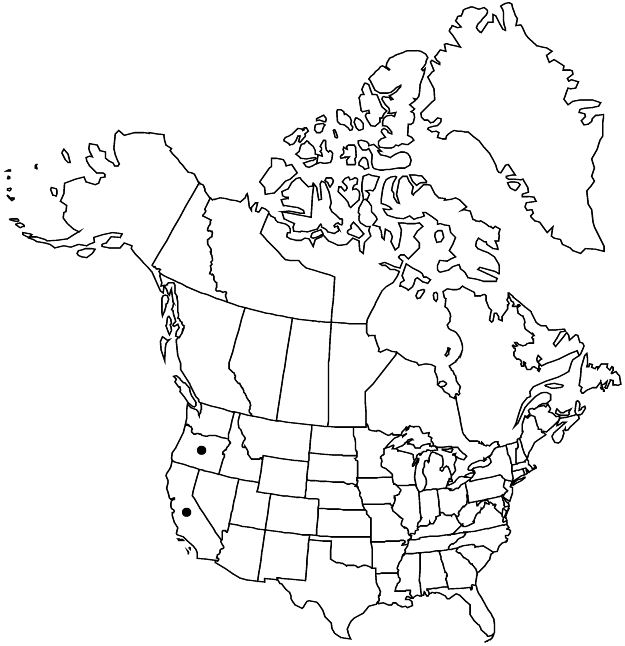Horkelia tridentata var. flavescens
Novon 17: 320. 2007.
Stems ± decumbent, 0.5–2.5(–4.5) dm. Inflorescences composed of usually 1 3–25-flowered ± corymbiform cluster. Flowers 6–10 mm diam.; hypanthium 2.5–5 mm diam., interior pilose (except in some North Coast Ranges populations); petals ± broadly oblanceolate, (1–)1.5–3(–4) × 0.5–1.5 mm, often shorter than sepals, apex obtuse to rounded or mucronate; filaments 1–2 × 0.2–0.4(–0.8) mm, anthers 0.3–0.5 mm; styles 1.5–2.5 mm. Achenes 2–2.5 mm, strongly rugose.
Phenology: Flowering summer.
Habitat: Open areas, primarily in conifer woodlands, often on serpentine soil
Elevation: 700–2000 m
Discussion
Variety flavescens occurs primarily in the mountains of northwestern California, from Mendocino to Siskiyou counties. A single collection is confirmed from Curry County, Oregon (Bear Camp Trail, Leach 4554, OSC); other collections from Curry and Josephine counties may be hybrids between this variety and Horkelia congesta var. nemorosa. A second cluster of populations occurs in central Plumas and adjacent Lassen counties, California, and historic collections are known from near Truckee on the border of Nevada and Placer counties, California. D. D. Keck (1938) suggested that this bicentric distribution may have resulted from the independent coalescence of the diagnostic characteristics of var. flavescens. The locality of a collection purportedly from Washoe County, Nevada (80 miles north of Reno, Brooks s.n., RENO) needs to be confirmed.
Selected References
None.
